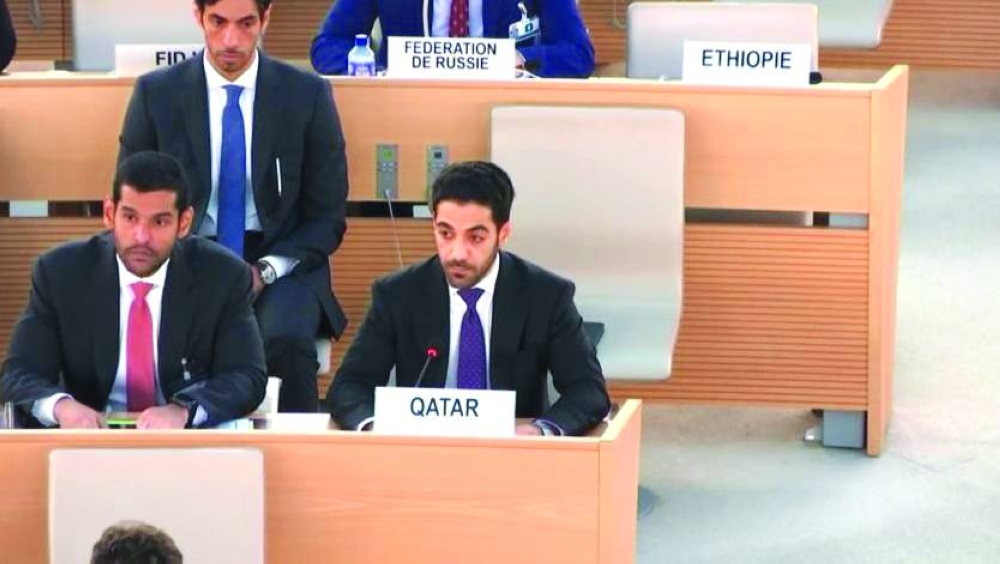The State of Qatar has stressed the importance of education as a fundamental right that should be enjoyed equally and called for protecting education from attacks, making schools secure spaces, and protecting them from being used for military purposes.
This came in the joint statement delivered by the third secretary of the permanent delegation of the State of Qatar to the UN office in Geneva Abdullah Ali Behzad on behalf of 57 countries during the interactive dialogue with the Special Rapporteur on the right to education within the framework of the 53rd session of the Human Rights Council in Geneva.
Education promotes knowledge, skills and core values of human, social and economic development which help achieve permanent peace and sustainable development, Behzad pointed out, noting the countries' commitment to upholding the responsibility of respecting the right to education, protecting and fulfilling it through the ratification of international human rights conventions. Such a commitment to protecting education includes the protection of educational facilities from attacks through all appropriate measures and assurances, he added.
He expressed his regret over the attacks on educational institutions over past years, pointing out that over 5,000 attacks were carried out on education in 2020 and 2021, based on a report of the Global Coalition to Protect Education from Attack, in addition to using schools and universities for military purposes which harmed over 9,000 students and teachers in 85 countries at least.
Behzad indicated that girls and women suffer more from attacks on education which target female students and teachers, adding that they face all kinds of conflict-related violations that could have long-term consequences on their future.
He urged all countries and warring parties to refrain from using schools for military purposes, ratify and implement the Safe Schools Declaration, calling on the UN High Commissioner for Human Rights and mandate holders within the framework of special procedures and bodies established under treaties to handle this matter within their respective mandates.

Education promotes knowledge, skills and core values of human, social and economic development which help achieve permanent peace and sustainable development, Behzad pointed out.
